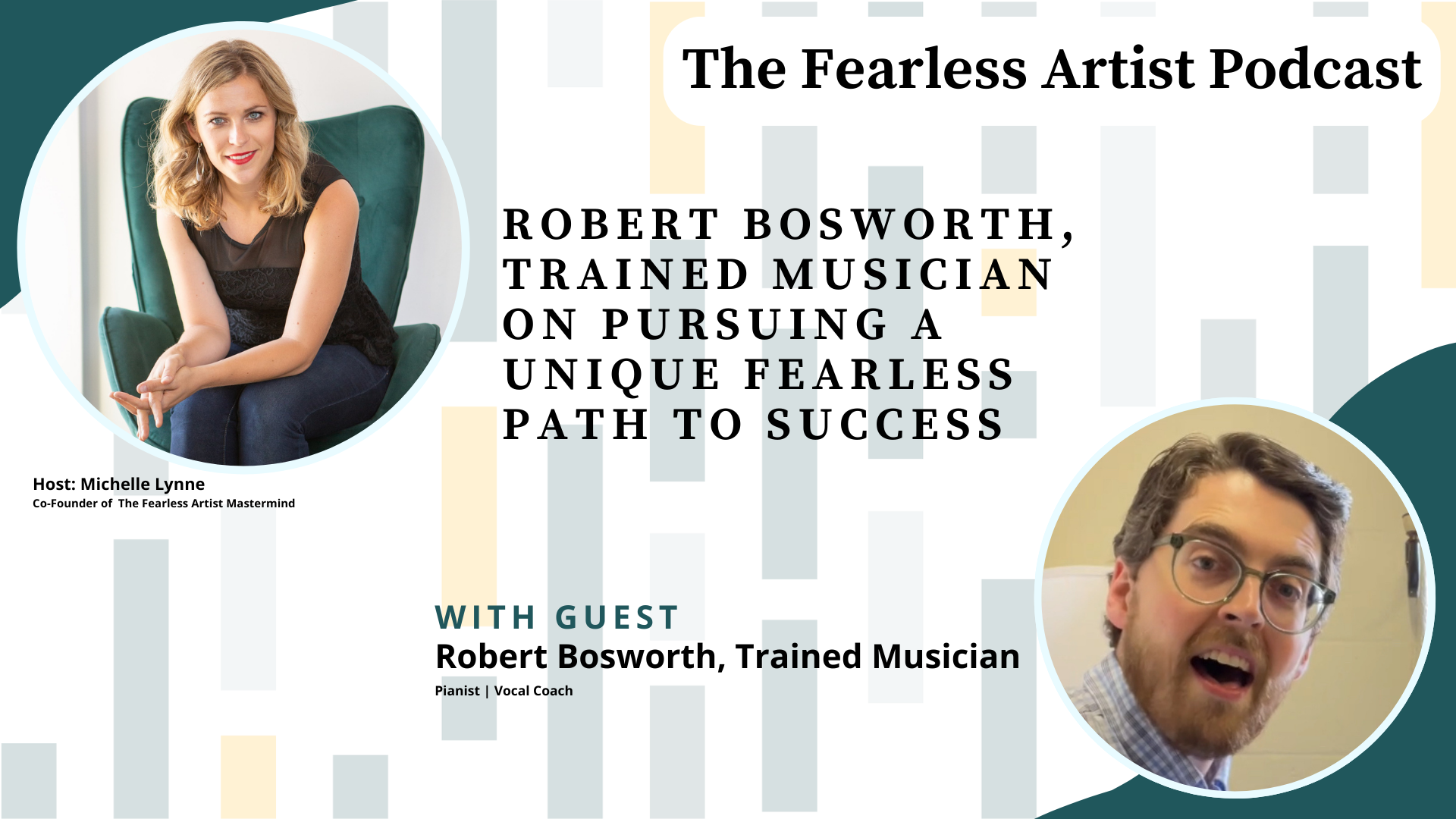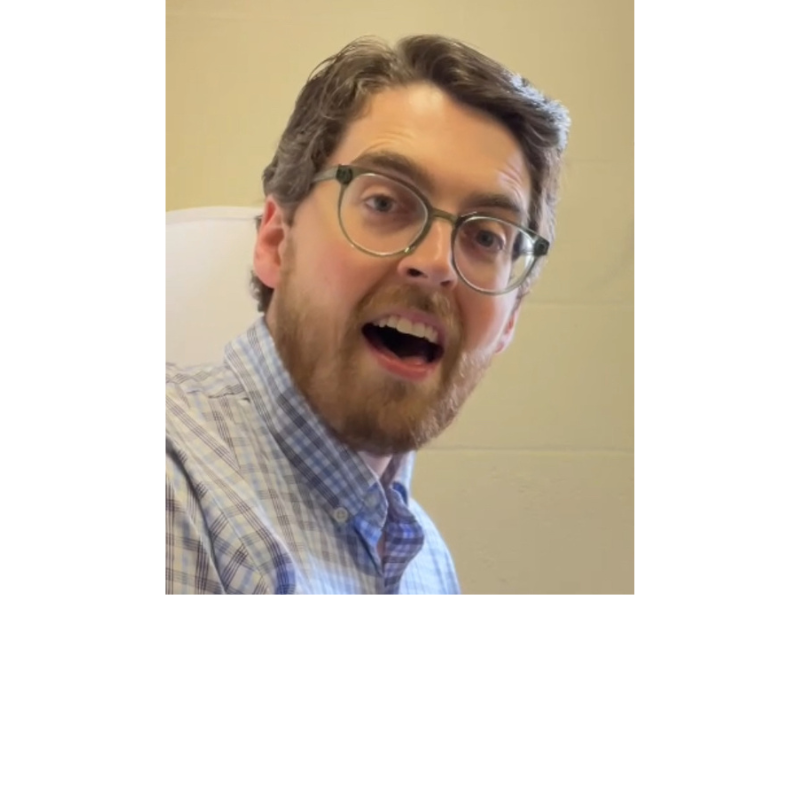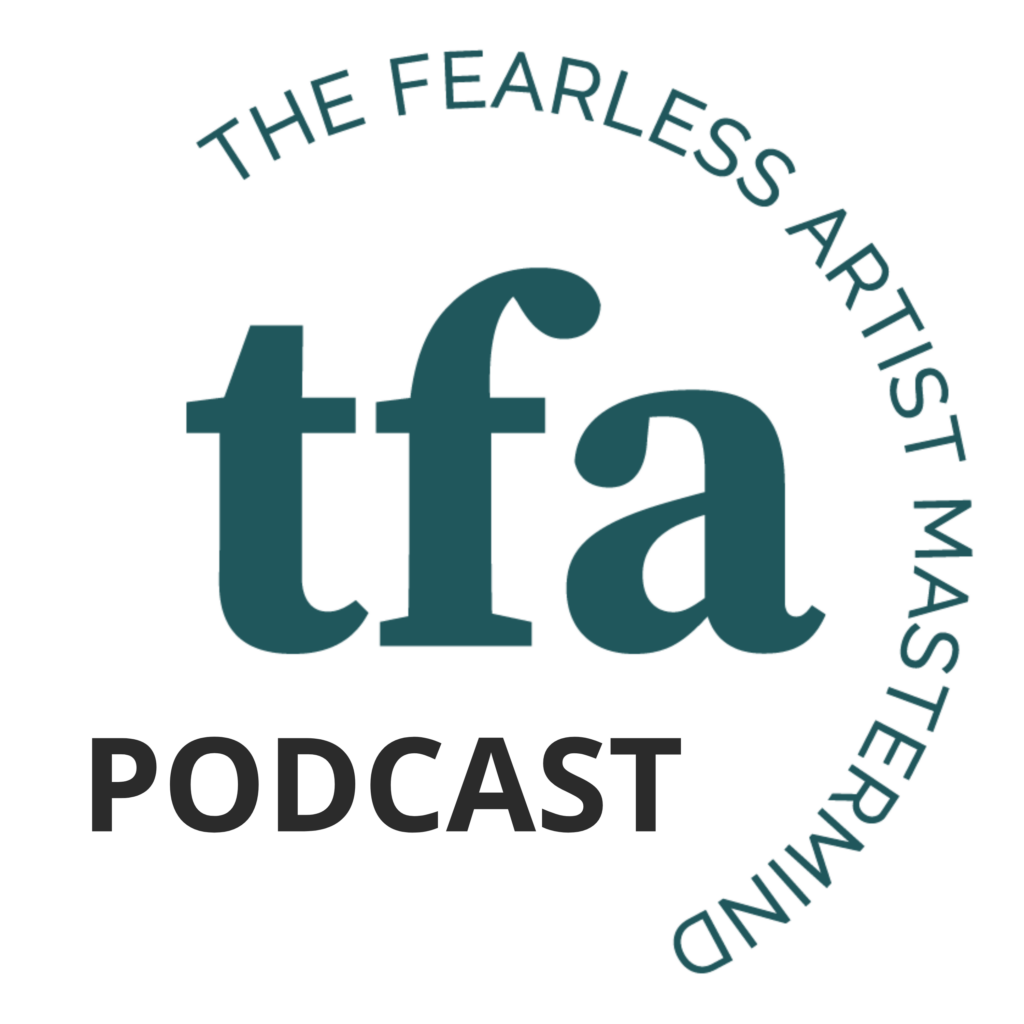Robert Bosworth, trained musician on pursuing a unique fearless path to success

Guest:
Robert Bosworth, Trained Musician
Pianist | Vocal Coach
Robert Bosworth is a pianist and vocal coach with an extensive career that includes credits from prestigious companies such as Santa Fe Opera, Arizona Opera, and Utah Opera, among others across the United States. He currently resides in Lexington, Kentucky with his wife and children, where he teaches at the University of Kentucky School of Music.
Robert holds degrees from Manhattan School of Music and the University of Kentucky, with further training from renowned programs including Wolf Trap Opera and the Merola Opera Program.
In addition to his work as a teacher and performer, he shares his unique perspective on life as a musician through humorous and thought-provoking commentary on his Instagram page, @robert.bosworth.music.

Subscribe to The Fearless Artist Podcast
Intro/Outro music by Michelle Lynne • Episode produced by phMediaStudio, LLC
